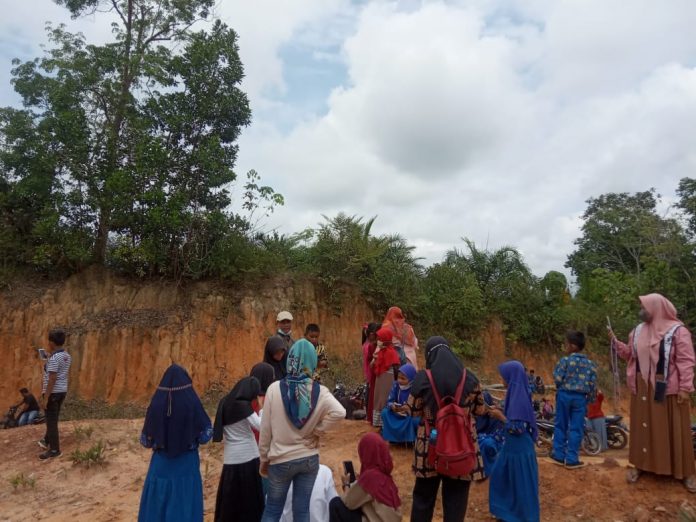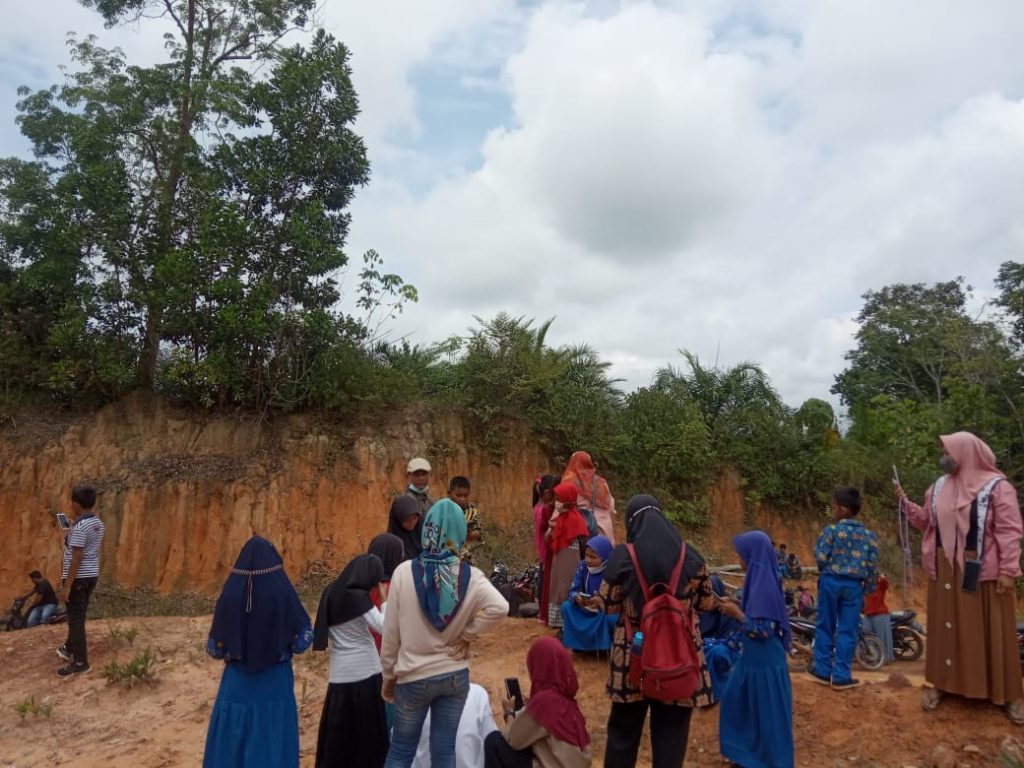
Students at SDN 154 Talang Aro
looking for an internet connection in Bukit Ceria to study
Indonesia, with its vast archipelago and diverse population, faces significant challenges in its education system. Issues such as limited internet access, a shortage of qualified teachers, inadequate teaching materials, and widespread poverty have long hindered the progress of education in the country. However, in recent years, over two hundreds of Educational Technology (EdTech) start ups have emerged as a powerful tool to address these challenges and bridge the educational divide in Indonesia. Are they successful so far? No, because most of those startups are online based.
THE DIGITAL DIVIDE AND INTERNET ACCESS
Indonesia’s geography poses a unique challenge to providing equal access to quality education. Many remote areas lack reliable internet connectivity, making online learning difficult or impossible. Edtech online companies failed to tackle this issue, only small innovative EdTech solutions that think outside the box have emerged that don’t rely on constant internet access: KIPIN
1. Offline Learning App: Kipin edTech has developed offline learning apps that allow students to access educational content without a live internet connection. These apps store lessons, videos, and interactive exercises on local devices, ensuring that students in remote areas can learn at their own pace. https://kipin.id/classroom/
2. E-books and Digital Libraries: Kipin offers electronic books (e-books) as a core solution that works offline. Schools can distribute ebooks that students can access on devices such as e-readers, tablets, or basic feature phones. This approach reduces the reliance on physical textbooks, which can be expensive and challenging to distribute. Kipin includes 5000 offline ebooks, 2000 videos, 50000 tryouts, and 500 literacy educational comics in its digital library.
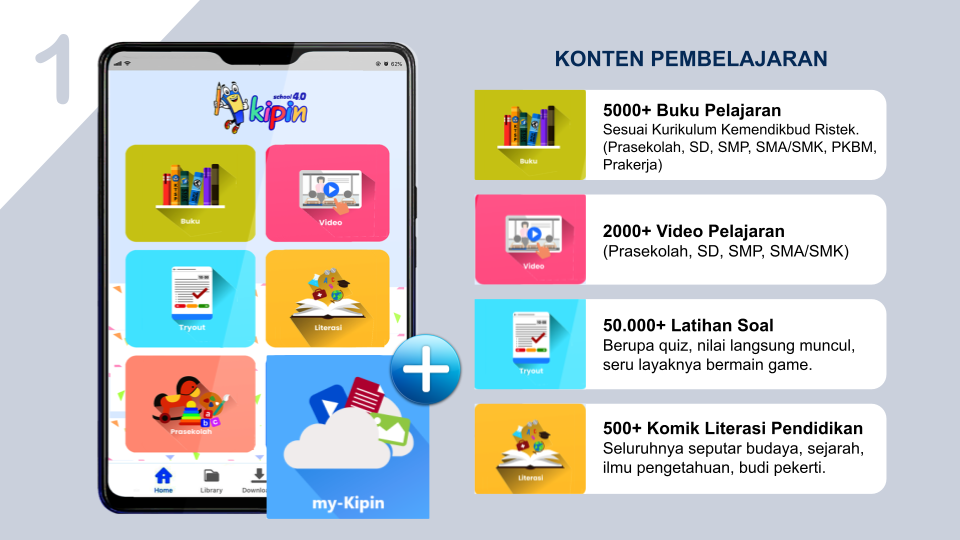
TEACHER SHORTAGES AND PROFESSIONAL DEVELOPMENT
A shortage of qualified teachers, particularly in remote areas, has been a persistent problem in Indonesia’s education system. Kipin EdTech addresses this challenge through:
3. Teacher Training Platforms: Online platforms offer training modules, videos, and resources for teachers https://pendidikan.id/webinar/. These platforms empower educators to enhance their teaching skills and leverage technology effectively in the classroom.
4. Teacher Video Support: Kipin EdTech allows experienced teachers to mentor their colleagues in remote areas through pre-recorded video and thousands of offline video collections organised by grades and subjects. This approach strengthens teaching quality, even in underserved regions.
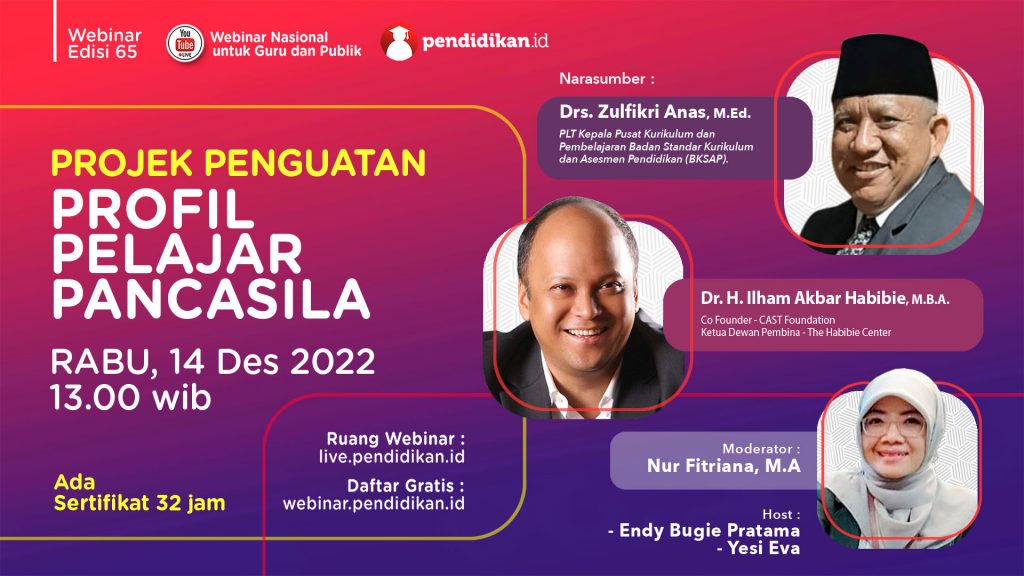
CONTENT GAPS AND LOCALIZATION
Inadequate teaching materials and curricula have long been a concern. To bridge content gaps and ensure relevance, Kipin EdTech offers:
5. Customised Content: Kipin EdTech platforms provide localised digital content that aligns with Indonesia’s national curriculum. Customised content ensures that students receive an education that reflects their local culture and context.
6. Local Language: The development of Kipin content is in local languages to promote inclusivity and ensure that language barriers don’t hinder learning opportunities.
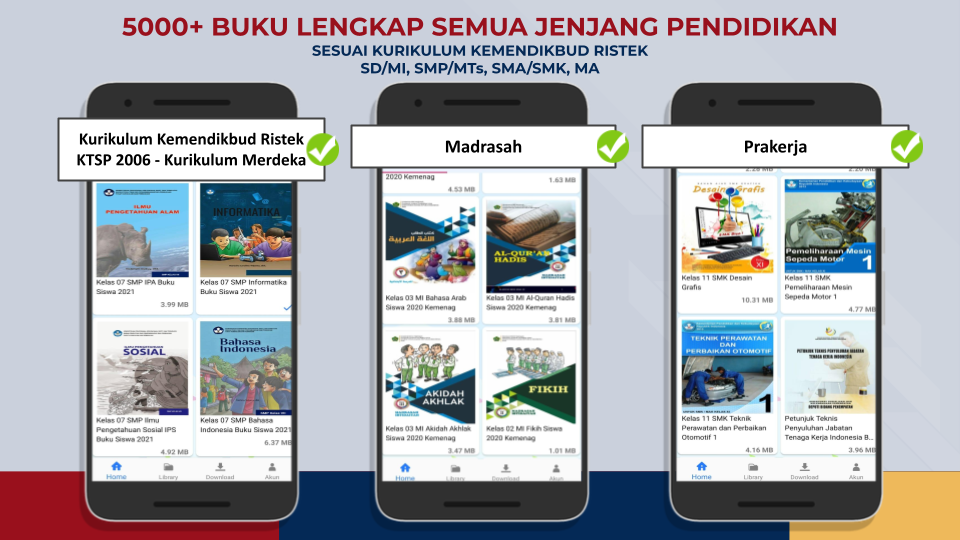
ADDRESSING POVERTY THROUGH ACCESSIBLE EDTECH
Finally, poverty remains a significant barrier to education in Indonesia. EdTech can play a crucial role in mitigating this issue:
7. Affordable Devices: Initiatives that promote affordable educational devices, such as low-cost tablets or refurbished smartphones and laptops, can make technology more accessible to economically disadvantaged students. Government subsidies and private-sector partnerships can help make these devices available. Kipin provides native apps for all android, ios, and window devices to be compatible.
8. Making School as Partners: Schools (K12) are free in Indonesia, but the majority of schools are not well equipped with up to date digital learning tools. This is where we add utility value. Kipin transforms traditional schools to digital with Kipin Classroom devices, in an instant the school (even in rural areas) becomes as good as any school in big cities.
Establishing schools as the modern digital learning centres with Kipin can provide students with free access to up to date EdTech resources and additional support. These schools serve as safe and conducive environments for learning.
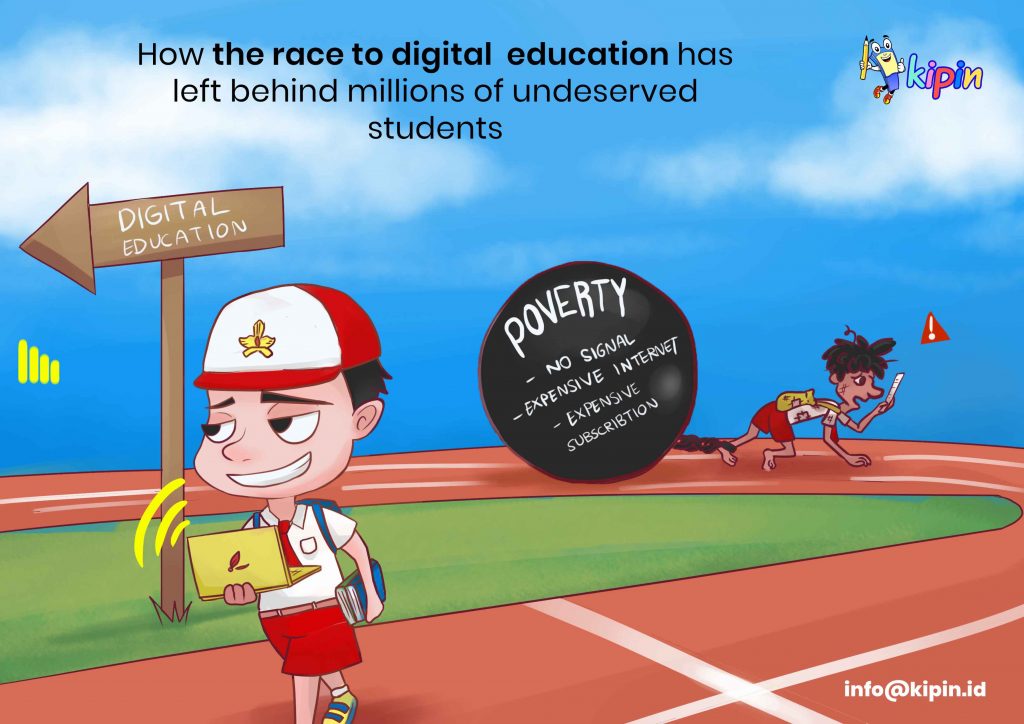
Conclusion
By implementing offline learning solutions, offering teacher training and support, providing localised content, and making technology accessible, Kipin edtech in partnership with Indonesia Ministry of Education can work towards creating a more equitable and inclusive education system. These efforts have the power to uplift communities, drive economic growth, and empower the next generation of Indonesians to achieve their full potential.


